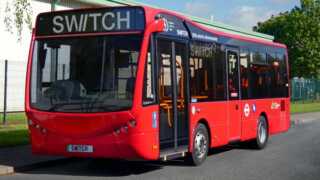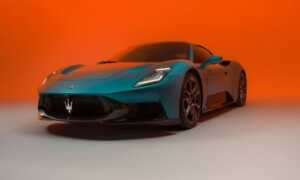Share via: The partnership begins with importing cells, but the ambition is to design and manufacture them in India within five years. …Read More The partnership begins with importing cells, but the ambition is to design and manufacture them in India within five years. Get Launch Updates on Notify me Ashok Leyland, India’s second-largest commercial vehicle maker, is taking its biggest step yet into the electric future. The Hinduja Group company has inked a 20-year deal with China’s CALB Group, the world’s third-largest battery maker, to gradually build capability in lithium-ion technology. The partnership begins with importing cells, but the ambition is to design and manufacture them in India within five years. The company has earmarked more than ₹50,000 crore in investment over the next decade to develop next-generation batteries, not only for its own trucks and buses but also for two- and three-wheelers, passenger cars, and even grid-scale storage solutions. Also Read : Ashok Leyland partners IIT Madras to develop hybrid electric vehicles Why it matters for IndiaIndia’s EV ambitions rest heavily on mastering batteries, the most expensive and strategic component of the electric ecosystem. According to BloombergNEF, India could become the world’s third-largest battery market by 2035, with demand growing nearly 19-fold. Yet, as of today, no domestic player truly “understands batteries,” as CEO Shenu Agarwal bluntly put it. Ashok Leyland’s step-by-step approach could become a template for other Indian conglomerates. Reliance Industries, JSW Group, and Adani have all been scouting for partnerships with Chinese firms to bridge the technology gap. Cautious learning curveFor now, CALB will supply the cells, while Ashok Leyland focuses on assembling them into packs. This means learning the finer details, from thermal management to integrating software, under CALB’s guidance. Agarwal stressed that the company is deliberately cautious: “Process is even more important than technology in the beginning.” Even Chinese giants, he noted, grapple with efficiency gaps in factories. That’s why Leyland’s strategy prioritises building competence patiently rather than rushing into large-scale manufacturing. Also Read : Ashok Leyland beats Q4 profit estimates on reduced costs Initially, the battery packs will power Ashok Leyland’s own fleet of buses and trucks. But within two to three years, the company expects to supply batteries across segments, including two-wheelers, three-wheelers, and the fast-growing grid storage market. An R&D hub focused on materials science and packaging is also on the cards, with CALB playing a supportive role. The ambition remains crystal clear: India-made lithium-ion cells. That milestone may take five years or more, but Ashok Leyland is willing to wait. “Batteries are a black box today,” Agarwal admitted. “This technology needs a lot of patience.” Get insights into Upcoming Cars In India, Electric Vehicles, Upcoming Bikes in India and cutting-edge technology transforming the automotive landscape. First Published Date: 25 Sept 2025, 08:27 am IST
Source: hindustantimes.com






